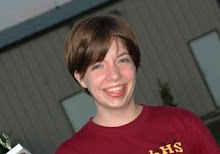In an effort to have a more thought-out, tailored approach for each student, I decided to research practice techniques. I found a lot of books on motivation of the artist, and lots of books that made you feel good about the idea of practicing, but very few books about the diagnosis of practice problems and practical techniques for overcoming them. The first (and I think the best!) book that I found along these lines was The Practice Revolution by Philip Johnston.
Philip Johnston has to be one of the most enlightened teachers of music on the planet. This book helped me to be objective about my own practice flaws and get past them. By doing this, it opened me up in new ways to help guide my students through their flaws into success. In the third chapter, Johnston discusses common practice problems; he defines the flaw, teaches you how to see if the student is practicing that way, and gives you tips to help correct the flaw. He discusses why students don't practice, and gives effective ways to learn new music, speed pieces up, get the hard parts under control, memorize and ideas on how to help students make a piece their own. Johnston also gets specific about the use of the lesson notebook and the role that parents can play.
When I read this book, I knew many of the techniques that Johnston discusses, but many of them were fresh ideas for me, and one of them has literally revolutionized the way I teach music (that is a whole other post!). If you are looking for ways to make yourself more effective as both a teacher and a musician, this book is absolutely one of the best places to start. I'd like to say that I recommend this book to music teachers everywhere, but the truth is I honestly believe every musician should read it, teacher or otherwise.









No comments:
Post a Comment